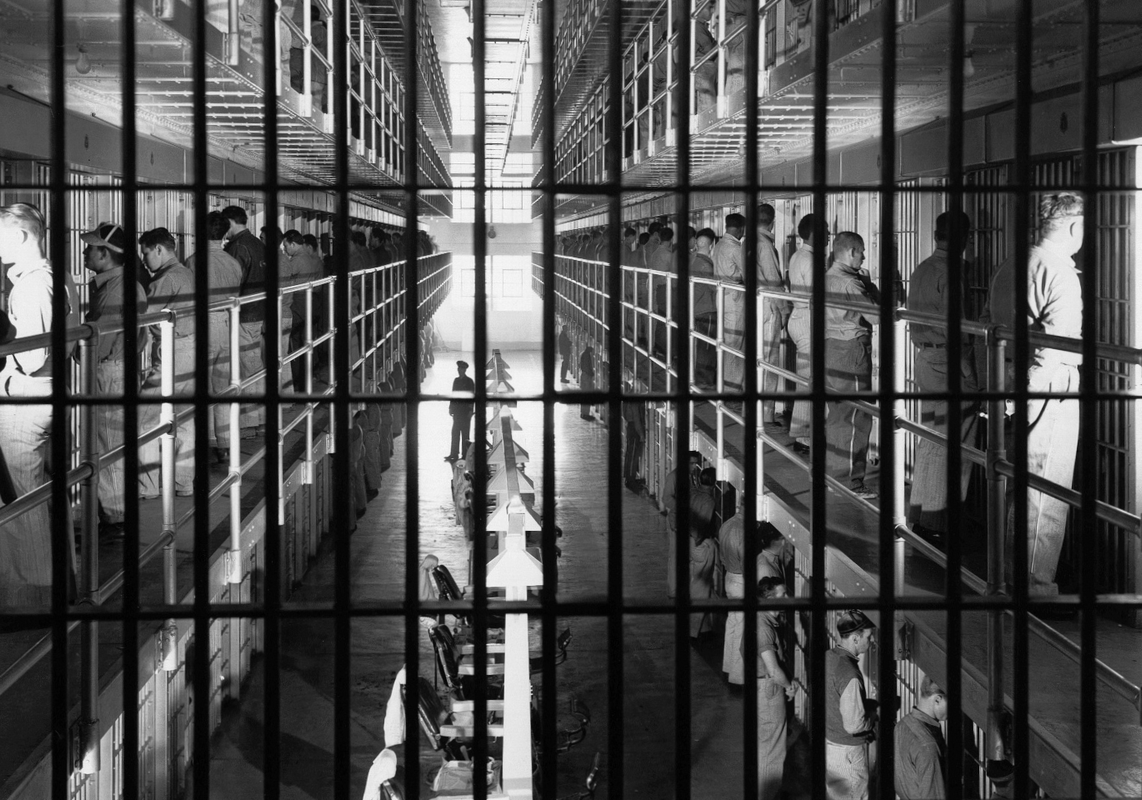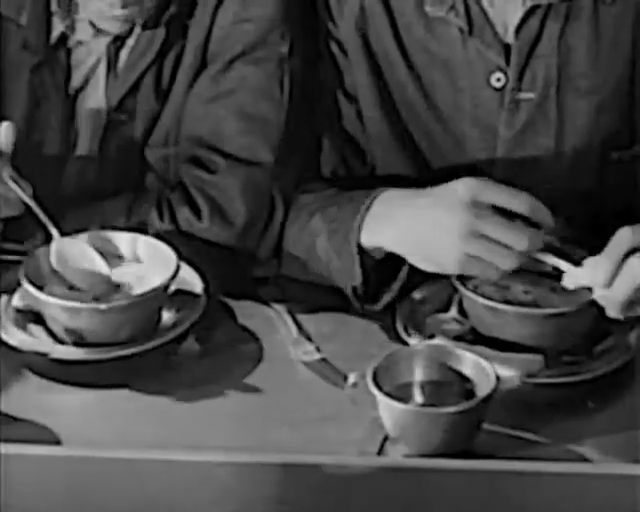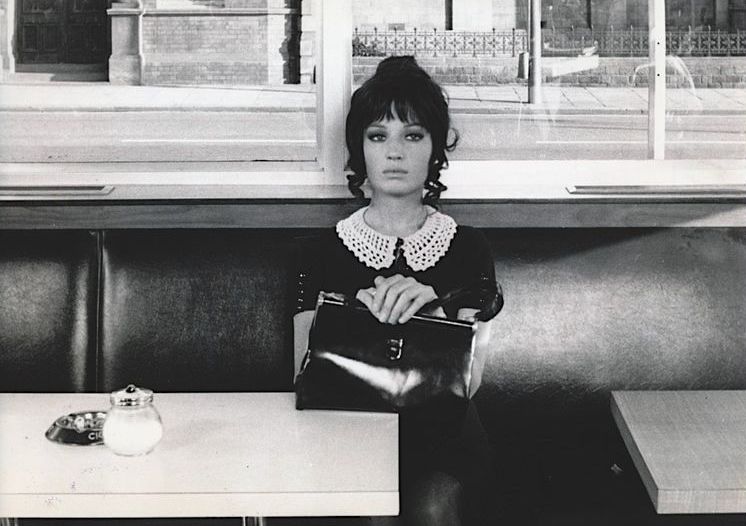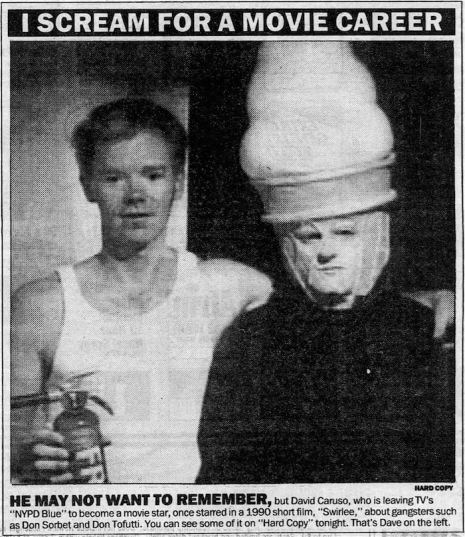“These children that come at you with knives, they are your children. You taught them. I didn't teach them. I just tried to help them stand up.” Manson (Robert Hendrickson + Laurence Merrick, 1973)
Aug
6
American Family Day

A large group of hippies somewhere outside in front of canopy. They appear to be mid-song, posing as if in a stage play. One of them wears a T-shirt with a Christ-like, bearded man on it. On closer inspection, some familiar faces. Captions reads “The Family”. DPs: Jack Beckett & Louie Lawless.
Everything America stood for – God, liberty and justice for all – fell apart in the 60s. A much-loved president and family man killed on live television. Teenagers shipped to a country many never heard of before, only to end up as cannon fodder. Peace loving middleclass white kids from well-to-do families gathering en masse in Haight-Ashbury, collectively fell to bum trips and bouts of gonorrhoea. What America needs is family. Someone who takes you in, understands you, sings you songs and feeds you. An older man with friendly eyes appears on the scene, doing just that.
– Charles Manson, testimony
What the press dubbed The Family was a microcosm of American society; a loose collective of lost kids. Taken in by charismatic peddling pimp #CharlieManson with a steady supply of #LSD and a place to be themselves, rootless kids like Lynette “#Squeaky” Fromme and Paul Watkins were finally part of a family again. The family grew too; besides more lost souls and the occasional Beach Boy visiting Spahn Ranch, babies were born at the Devil's Slide.
Hendrickson and Merrick's Manson offers a candid and by times surreal portrait of a few #MansonFamily members (Squeaky makes out with a riffle, purring about how killing is like having an orgasm while Atkins lays out her plans to murder Frank Sinatra) right in the middle of the spectacle [sic] court-case. It was even nominated for an Oscar – which went to that other charismatic 70s evangelist, Marjoe (1972), while Manson was banned after Fromme's botched assassination attempt on President Gerald Ford in '75 and was lost for decades.
Stylistically inspired by Woodstock (1970) and soundtracked by the Family themselves, Manson remains a fascinating curio in the undying output of #Mansonsploitation movies. However gruesome, the American family is forever cemented in that holy cornerstone of self-immolation.
crime
“How about you slip into something more comfortable, like a few drinks and some Chinese food?”The Blue Gardenia (Fritz Lang, 1953)
Aug
5
International Hangover Day

Norah (Anne Baxter) and Harry (Raymond Burr) sharing a meal – and a drink (or two) – at the Blue Gardenia Club. DP: Nicholas Musuraca.
After a horrible birthday alone followed by a lovely night out, Norah wakes up with a terrible hangover and a hunch of being a murderess.
– Harry
The Blue Gardenia is Lang's hard-bitten take on the gruesome Black Dahlia murder case and part of his newspaper noir trilogy together with While the City Sleeps and Beyond a Reasonable Doubt, both from 1956.
“Nice guys.” Canon City (Crane Wilbur, 1948)
Aug
1
Colorado Day

Counting the inmates. DP: John Alton.
They've been planning this for months, Canon City's Colorado Territorial Correctional Facility's toughest inmates. It's going to happen on December 30, and all men are ready to go.
Fascinating about Canon City is the usage of some of the actual locations, ánd people, involved in the 1947 #prison break.
Also striking, unfortunately, is the unevenness of the affair. John Alton's cinematography, while wonderful, wanders between noir and stuck camera shutter. And that voice-over… well, lets not mention that at all.
Canon City (Crane Wilbur, 1948)
Jul
31
grub

A close-up of two prisoners' hands. One is handling grub with a spoon from a stainless steel soup bowl. DP: John Alton.
Dillinger è morto (1969)
Glauco (Michel Piccoli) finishing his copious dinner with half a watermelon. In his right hand the copy of the July 25, 1934 Chicago Daily Tribune with the headline CLEAR UP DILLINGER MYSTERY. DP: Mario Vulpiani.

July 31: watermelon on #NationalWatermelonDay
Dillinger è morto [Dillinger Is Dead] (Marco Ferreri, 1969)
Pow!
Industrial designer Glauco (Michel Piccoli) arrives home after a long long, tedious day. His wife Ginette (Anita Pallenberg) – in bed high on painkillers – cooked dinner but the dish is bland and long cold, and the maid (Annie Girardot) is already sleeping. Glauco decides to cook himself a gourmet meal. Looking for ingredients he finds a 1934 newspaper reporting the dead of Chicago gangster John Dillinger with inside of it a rusty 1930s revolver. Fascinated, he meticulously restores the handgun while preparing his meal.
Dillinger è morto is a story of food and alienation. Piccoli's Glauco, bored of his successful career, bored of his beautiful wife, bored of his beautiful house, finds sudden vigour in the act of preparing food and restoring an item that shouldn't be where it is and with that, essentially recreates John Dillinger's escape from Crown Point.
John Dillinger posing with a Tommy gun and the hand-carved wooden gun that he used to escape inescapable Crown Point jail on March 3, 1934. Crudely carved into the dupe's barrel are the words COLT 38.
#Bales2023FilmChallenge #MarcoFerreri #MichelPiccoli #AnitaPallenberg #AnnieGirardot #TeoUsuelli #MarioVulpiani #Italy #drama #crime #satire #food #1960s ★★★★☆
“The reality is that we do not wash our own laundry; it just gets dirtier.”Serpico (Sidney Lumet, 1973)
Jul
30
National Whistleblower Day

The cover of the Austrian film magazine “Neues Filmprogramm”. A red-filtered lobby card of Frank Serpico (Al Pacino) and his partner (F. Murray Abraham, uncredited) during police proceedings. DP: Arthur J. Ornitz.
In the late 1960s, Frank Serpico worked as a plainclothes cop for the #NYPD. He spoke out when he uncovered systematic, widespread #corruption within the force, but his findings were ignored. In 1970, Serpico cowrote a page 1 article for the New York Times about the problem, which led to the instalment of the Commission to Investigate Alleged Police Corruption aka the Knapp Commission.
– Frank Serpico
The following year during a drug-related arrest attempt, he was shot in the face under shady circumstances. This is where Sidney Lumet's Serpico, based on Peter Maas and Frank Serpico's book of the same name, starts.
“Ah, well, if you love somebody, shoot!”La ragazza con la pistola [The Girl with a Pistol] (Mario Monicelli, 1968)
Jul
28

Assunta Patanè (Monica Vitti) seated between two dinner tables on a long, padded bench. She's clutching her purse and appears to be waiting for something. On the table to her right a sugar bowl and a branded ashtray. DP: Carlo Di Palma.
– Dr. Tom Osborne
“Ich werde mich entschlossen verirren.” Die Angst des Tormanns beim Elfmeter [The Goalie's Anxiety at the Penalty Kick] (Wim Wenders, 1972)
Jul
28
National Soccer Day

Trainer, reserve players and goalkeeper Bloch on the bench after the latter has been removed from the match. Bloch (Arthur Brauss) has his upper body turned away from the others' and sits with only half of his backside on the bench. DP: Robby Müller.
A lot of #soccer there's not, in Wim Wenders' Die Angst des Tormanns beim Elfmeter. What we do have happens almost right at the start. After a foul, the titular goalkeeper Bloch (Arthur Brauss) is removed from the match. Frustrated he leaves and finds himself roaming the streets of #Vienna where he picks up boxoffice girl Gloria (Erika Pluhar). In the morning he kills her and travels to the countryside, waiting for the police to arrest him.
– Peter Handke
Die Angst is an early, perfect example of Junger Deutscher Film (”New German Cinema”). Its cinematic thanks to Robby Müller's observant eye and Peter Handke's precise language, both describing scenes and performers as if observed through a fourth wall.
A very slow burning road movie, a Taxi Driver in reverse if you will, that does without the neurotic showmanship of its Hollywood counterpart.
Swirlee (James Lorinz, 1989)
Jul
23
National Vanilla Ice Cream Day

Newspaper clipping. Mr Softy's roommate (David Caruso) and Mr Softy (James Lorinz), a man with a softee for/as a head, pose for a picture.
– He's got a calendar in there.
– What day is it?
– It's a broad in a cowboy hat.
– Scooby doo bi doo ba ba.Private Property (Leslie Stevens, 1959/1960)
Jul
21

Duke (Corey Allen) and Boots (Warren Oates) “watching TV”. Ann Carlyle (Kate Manx) stripping for her husband is on. DP: Ted D. McCord.
Date watched, not the date in the movie. The quote was too good to leave it off this blog.
